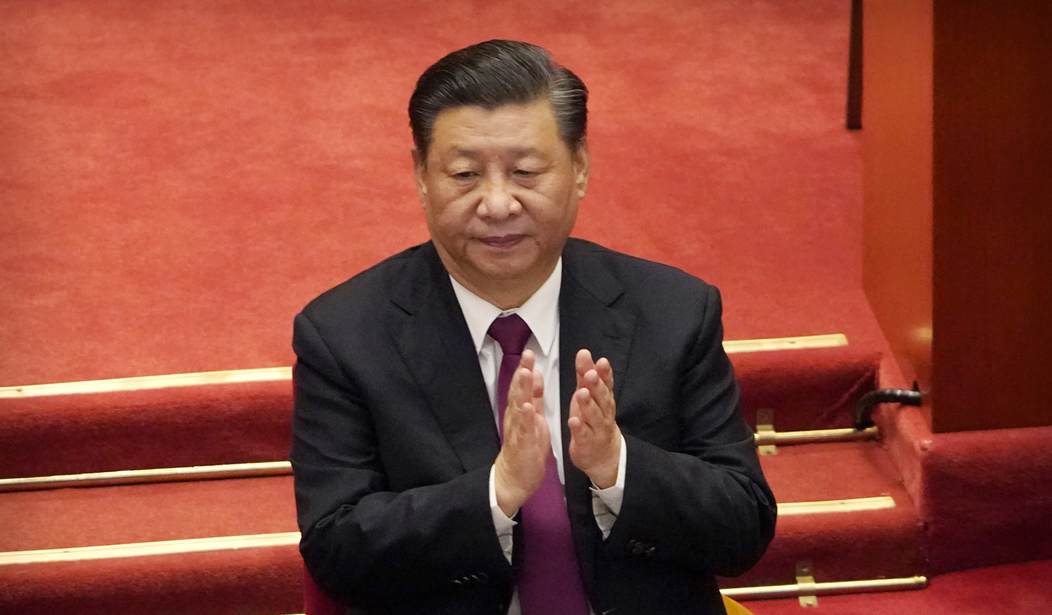And probably always will be, thanks to the fecklessness of the World Health Organization and Western institutions too beholden to China. A much-ballyhooed effort to use our intelligence community to get an answer about the origin of COVID-19 has turned up no convincing conclusion, the Washington Post reported late last night. Is this the end of the investigation, or just the beginning?
President Biden on Tuesday received a classified report from the intelligence community that was inconclusive about the origins of the novel coronavirus, including whether the pathogen jumped from an animal to a human as part of a natural process, or escaped from a lab in central China, according to two U.S. officials familiar with the matter.
The intelligence community will seek within days to declassify elements of the report for potential public release, officials said.
The assessment is the result of a 90-day sprint after Biden tasked his intelligence agencies in May to produce a report “that could bring us closer to a definitive conclusion” on the origins of a virus that has killed more than 4 million people globally and wrecked national economies. But despite analyzing a raft of existing intelligence and searching for new clues, intelligence officials fell short of a consensus, said the officials, who spoke on the condition of anonymity because the report is not yet public.
This effort was doomed to failure on multiple levels. First, the “90-day sprint” idea sounds great, until one realizes that few questions get settled on the basis of deadlines. Joe Biden seems inordinately attached to calendars, however, as he’s currently proving in Afghanistan. Politico noticed this earlier in the week, too:
If Joe Biden’s withdrawal plan from Afghanistan has appeared chaotically rushed, it’s a product of his own making.
The White House has been clear for weeks that there wouldn’t be a “mission accomplished moment” to end America’s longest war. But after initially pushing back the timeline to pull out of the country, the president had been adamant about marking the war’s end by a date certain: Aug. 31. And it quickly became the latest example of how the White House’s devotion to deadlines can backfire.
“Deadlines serve a purpose. They are motivational. They bring focus,” said David Axelrod, a senior strategist for former President Barack Obama. “They also can be treacherous and hard to keep, especially in complex situations. And that can come back to bite you.”
Investigations require time, patience, and resources. Deadlines impose situations where none of the three are in full supply.
Second, is this really an intelligence question? The intelligence could inform a scientific investigation by getting data being held by China, for instance, and communications that could enlighten investigators as to who knew what and who did what when. However, as the Post points out, intelligence missions have a very different scope, which makes them inexpert where it really matters on this question:
Another official said the intelligence community is “not necessarily best equipped to solve this problem,” which is fundamentally an issue of science. Although spy services are “positioned to collect on a range of foreign actors,” the official said, they are not necessarily poised to dive into global health data sets.
In other words, it’s not much of a surprise to read that the effort failed. It was designed for failure. The big question is whether the Biden administration will use this failure as an excuse to quit investigating the origin of COVID-19. “We should not even be thinking about closing the book or backing off, but rather ratcheting up the effort,” Stanford microbiologist David Relman told the Post, but one has to think the design for failure was a deliberate step to putting the issue aside as unanswerable. That would certainly make it easier for Biden to get back to a more business-as-usual stance with China.
China might end up forcing Biden’s hand, however. Their intelligence services keep pushing the idea that the US concocted COVID-19:
Much of the Chinese response this week seemed preplanned for worst-case scenarios of what the U.S. report might say. State media blasted U.S. intelligence agencies for cherry-picking evidence to support a predetermined conclusion, even as sources told The Washington Post the report is inconclusive about whether the virus may have come about in a natural process or escaped from a lab.
The push included statements this week from multiple Chinese embassies around the world — an increasingly frequent occurrence, as Beijing encourages its diplomats to be more forceful in defending the country.
China’s ambassador to the United Nations, Chen Xu, sent a letter Monday to Tedros, declaring that the U.S. military lab at Fort Detrick in Maryland is the one that should be under investigation, instead of any Chinese labs, according to a statement from the Chinese mission in Geneva. The mission said Tedros was also sent a petition signed by 25 million Chinese netizens requesting an investigation of the Fort Detrick lab.
The Chinese Embassy in Egypt held a news conference on Monday to denounce the U.S. intelligence report as a product of conspiracy theories.
That preplanned propaganda response should have everyone asking: What did Beijing think the Americans might find? That question, and the ridiculous disinformation blitz from the PRC, should fuel a real investigation into the origins of COVID-19.








Join the conversation as a VIP Member